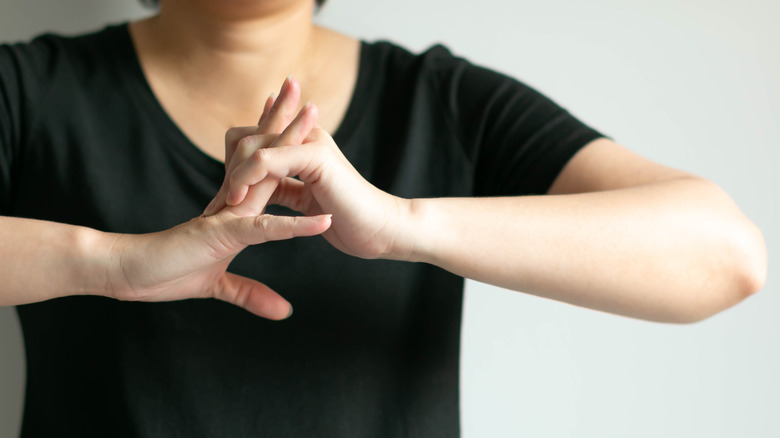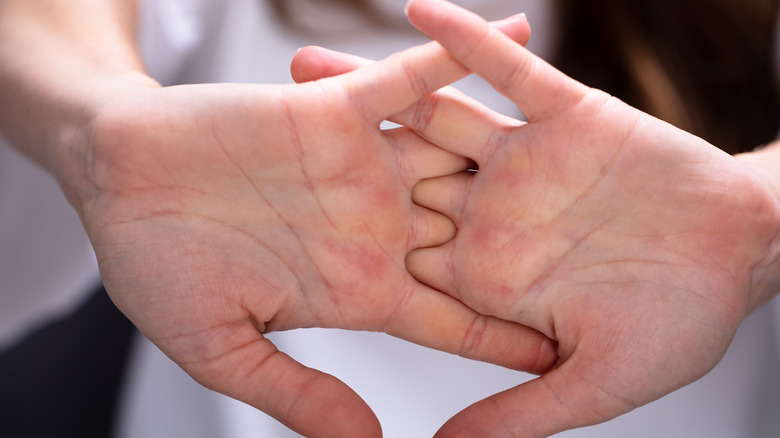Side Effects Of Popping Your Knuckles
Popping or cracking knuckles is a common habit. For some people, it may relieve some nervousness, tension, or stress (via Healthline). Others might like the way it feels or simply enjoy the sound of their knuckles cracking. While researchers aren't exactly sure where the sound of that satisfying "pop" comes from, it's believed to be caused by gas bubbles in the joint fluid collapsing and bursting as the space between finger joints is increased (via Harvard Health Publishing).
There isn't a whole lot of research being done on knuckle popping, but there is evidence to suggest it isn't harmful and does not lead to arthritis. A report published in Arthritis & Rheumatology details an experiment a physician performed on himself in which he regularly cracked his knuckles on only one hand throughout his lifetime. After decades of doing this, he examined x-rays of his hands and found no difference in arthritis between the two. Other, larger studies have confirmed this.
Cracking your knuckles also shouldn't be painful, lead to swelling, or change the shape of the joint. If you notice these symptoms, it's likely caused by an underlying condition like arthritis or gout, and you should talk to your doctor. If you pull on your knuckles hard enough, it is possible to injure the ligaments or even pull your finger out of your joint, though this is very hard to do. This would be very painful and your finger may swell or look crooked so you should seek care right away.
How to stop popping your knuckles
While cracking your knuckles is harmless, the noise may disturb other people, especially those you live with. If you'd like to break the habit, there are some steps you can take. First, you might want to try thinking about why you crack your knuckles and address the issue. For example, if you pop your knuckles because you are stressed, consider meditation, deep breathing, or exercise to relieve some of that tension (via Healthline). Being aware of the times you want to crack your knuckles and taking a moment to actively stop yourself can be helpful for some people, too.
You could also place physical reminders in your hands to prevent knuckle cracking. Keeping your hands busy by squeezing a stress ball or rubbing a stone might distract you enough to avoid cracking your knuckles. Tying a rubber band around your wrist and snapping it lightly whenever you're tempted to pop your knuckles may also help control the urge.


